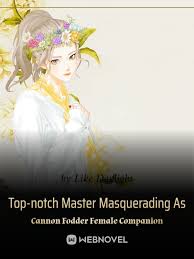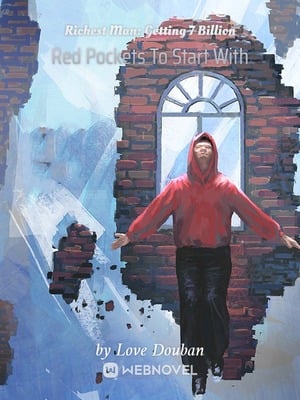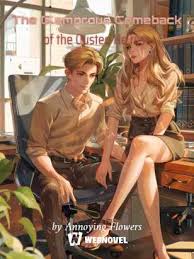The Story in 3 Sentences
A celestial snow fairy named Tan Mo, on the verge of becoming human, is abruptly reincarnated into the mortal world as the cherished daughter of the Tan family, only to discover she now occupies the role of a doomed cannon fodder character from a tragic fate she once glimpsed in her master’s mirror.
Armed with supernatural insight and centuries of wisdom disguised in a child’s body, she resolves to protect her doting parents and three fiercely loyal brothers from the manipulative schemes of green tea antagonists like Qin Murong and Yuan Keqing.
As she grows, her bond with the enigmatic and protective Wei Zhiqian deepens into a romance that defies age norms, reshapes destinies, and transforms her from a destined victim into an untouchable master of her own story.
Why It Stands Out
1. Reincarnated Wisdom in a Child’s Skin
Unlike typical child protagonists who stumble through naivety, Tan Mo enters the human world with the mind of an ancient cultivator—sharp, strategic, and emotionally mature—yet perfectly masks it behind adorable innocence, creating a delicious contrast between her inner mastery and outer cuteness that drives both comedy and catharsis.
2. The Anti–Family Drama Family
In a genre saturated with backstabbing relatives and inheritance wars, the Tan household is a rare oasis of unconditional love: three brothers who credit their success to their “low-key genius” little sister, parents who age in grief only in the original timeline, and a home where support replaces suspicion—making every victory feel earned through warmth, not warfare.
3. Green Tea Warfare, Master-Class Edition
The novel flips the “green tea” trope on its head by pitting a true master—Tan Mo—against amateur manipulators; she doesn’t just expose their schemes, she outperforms them with elegance, turning their weapons of fake fragility into tools for her own dazzling rise in entertainment, arts, and society.
Characters That Leave a Mark
There’s Qin Murong – the polished, seemingly gentle cousin whose calculated tears and strategic fainting spells once paved her path to the Wei family, only to crumble when faced with Tan Mo’s effortless authenticity and Wei Zhiqian’s unwavering loyalty.
You’ll meet Yuan Keqing, who masks envy beneath sweet smiles and “concerned” whispers, attempting to isolate Tan Mo socially during their school years, yet repeatedly undone by the girl’s supernatural intuition and the protective circle formed by her brothers and Wei Zhiqian.
And Wei Zhiqian? They’re the one who defies every expectation of the aloof male lead—choosing to guard Tan Mo from childhood, not out of obligation, but genuine affection, and later becoming both her romantic anchor and her fiercest advocate in a world that underestimates her.
The Flaws Fans Debate
Some readers criticize the portrayal of six-year-olds engaging in complex social scheming and status-conscious dialogue, arguing it undermines childhood authenticity and stretches believability even within a fantasy framework.
Others express discomfort with the early dynamic between Tan Mo and Wei Zhiqian, noting that his possessive protectiveness and her emotional dependence during her formative years edge uncomfortably close to grooming tropes, despite the eventual consensual romance.
A recurring critique mentions that the romance, while fluffy, relies too heavily on repetitive tropes like accidental falls, “wet” dreams, and forced proximity after Chapter 400, making the love story feel contrived rather than naturally developed.
Must-Experience Arcs
Ch. 1–120: The Snow Fairy’s Awakening – Tan Mo adjusts to mortal life, exposes Qin Murong’s first major scheme at a family gathering, and earns the lifelong devotion of her three brothers through quiet acts of genius disguised as childish whims.
Ch. 300–500: The Entertainment Prodigy Emerges – Under a pseudonym, Tan Mo writes award-winning scripts, composes chart-topping songs, and paints masterpieces that sell for billions, all while maintaining her “innocent little sister” image, baffling critics and delighting her brothers who publicly credit an unnamed muse.
Ch. 750–950: The Final Masquerade Unveiled – As her true identity as the anonymous creator behind multiple cultural phenomena is revealed, Tan Mo confronts the last remnants of her cannon fodder fate, dismantles the green tea alliance for good, and stands beside Wei Zhiqian as an equal—no longer protected, but protecting.
Killer Quotes
“Without my protection, she would be ruthlessly bullied by those pretentious and innocent-looking Machiavellians.”
“No matter what you do, you can’t just give up because of difficulties. Choosing the easy way means giving up. Precisely, my name is difficult.”
“Sister Murong, don’t worry. Mo Mo has only met Little Uncle once and is not familiar with him.”
Cultural Impact
Fans coined the term “Shameless Husbands Club” to describe the interconnected male leads across As If Dawn’s “Seven Gentlemen” series, with Wei Zhiqian’s devotion sparking memes like “Who is bullying who?” that went viral on Webnovel forums.
The novel’s rejection of intra-family conflict resonated deeply with readers tired of toxic tropes, leading to widespread praise for its “warm-hearted family” dynamic as a refreshing alternative in urban fantasy romance.
Its blend of childhood innocence and strategic brilliance inspired countless fanfictions and art depicting Tan Mo as a “tiny overlord in pigtails,” cementing her status as a cult favorite among readers who prefer brains over brawn in female leads.
Final Verdict
Start Here If You Want:
A feel-good reincarnation story where family love is the ultimate power-up and the heroine wins through wit, not weapons.
A romance that begins in childhood but matures into a partnership of equals, wrapped in fluff and face-slapping satisfaction.
A subversion of the cannon fodder trope where the destined victim becomes the architect of everyone else’s downfall—gracefully.
Study If You Love:
Narratives that explore the ethics of reincarnated knowledge and the tension between childlike appearance and ancient wisdom.
Urban fantasy that integrates supernatural elements subtly, using them to enhance character depth rather than dominate plot mechanics.
Stories that critique performative femininity by contrasting genuine kindness with manipulative “green tea” behavior through sharp social commentary.
Avoid If You Prefer:
Realistic child psychology—this novel leans into fantasy logic where kids can be strategic masterminds.
Slow-burn romances that avoid physical or emotional intimacy until adulthood; here, emotional bonds form early and intensify over time.
Plots free of repetitive romantic tropes; post-Chapter 400, some readers find the love scenes formulaic despite strong chemistry.





